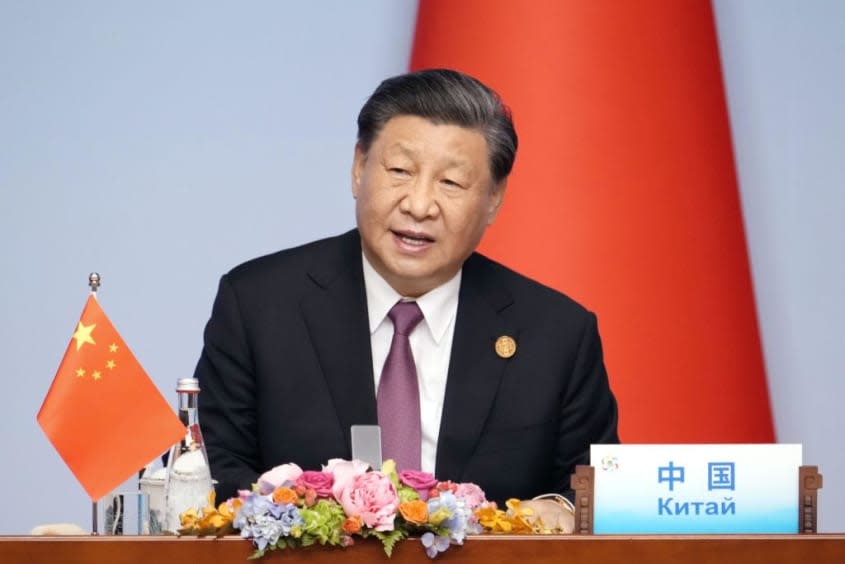Xi Jinping tells national security team to prepare for 'worst-case scenario'

- Oops!Something went wrong.Please try again later.
Chinese President Xi Jinping told his national security team Tuesday that they should prepare for a "worst-case scenario," saying that internal and external threats to the country had increased.
Xi, who spoke during a meeting of the Chinese Communist Party's National Security Commission, said the "complexity and difficulty of the national security issues we now face have increased significantly," according to China's state-run Xinhua News Agency. The country must "adhere to bottom-line thinking and worst-case scenario thinking, and get ready to undergo the major tests of high winds and rough waves, and even perilous, stormy seas," Xi added.
The Chinese president, who won an unprecedented third term as his country's leader this past March, has been open about the perceived challenges he believes China faces, particularly from the United States. Xi pressed his officials to fast-track the implementation of a national security monitoring system, as well as enhanced national security education and AI security.
Since taking power, the strongman, described by some as a dictator, has angled national security as one of China's foremost issues, turning it "into a key paradigm that permeates all aspects of China's governance," according to the Mercator Institute for China Studies.
As the rivalry between China and the United States continues to build, both nations have increased their national security efforts. The U.S. has sanctioned a number of Chinese tech companies, while Xi has directly blamed the United States for leading the "Western suppression" of China.
While Xi talks about the "worst-case scenario," it is unclear what this could exactly be referring to. It could "include a nuclear war, a devastating war that ruins China's coastal economic belts, [or] Western sanctions on China's energy, finance, and food supply," Xie Maosong, a senior fellow at Beijing's Taihe Institute, told the South China Morning Post.
You may also like
Air New Zealand to weigh international passengers as part of safety survey
Thousands flock to Missouri to see body of nun who died in 2019

